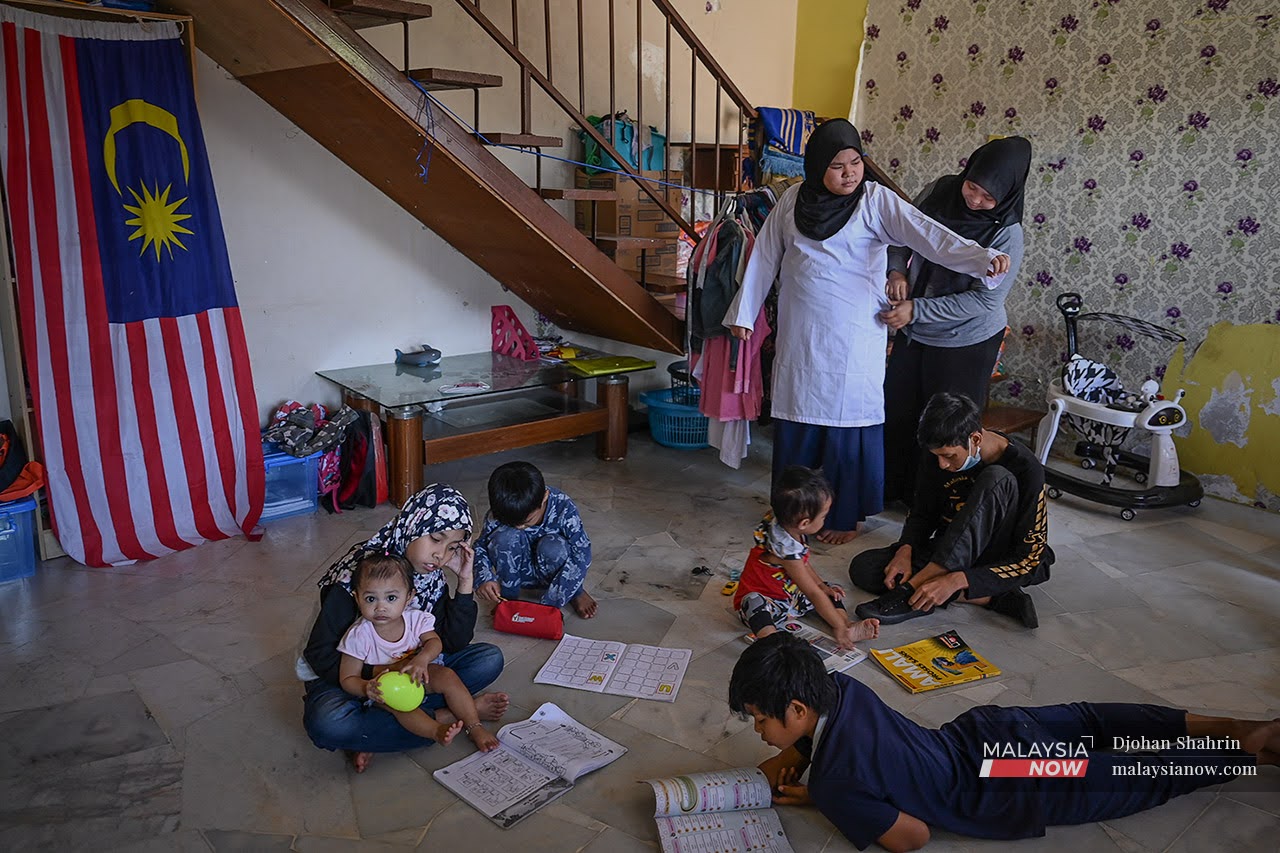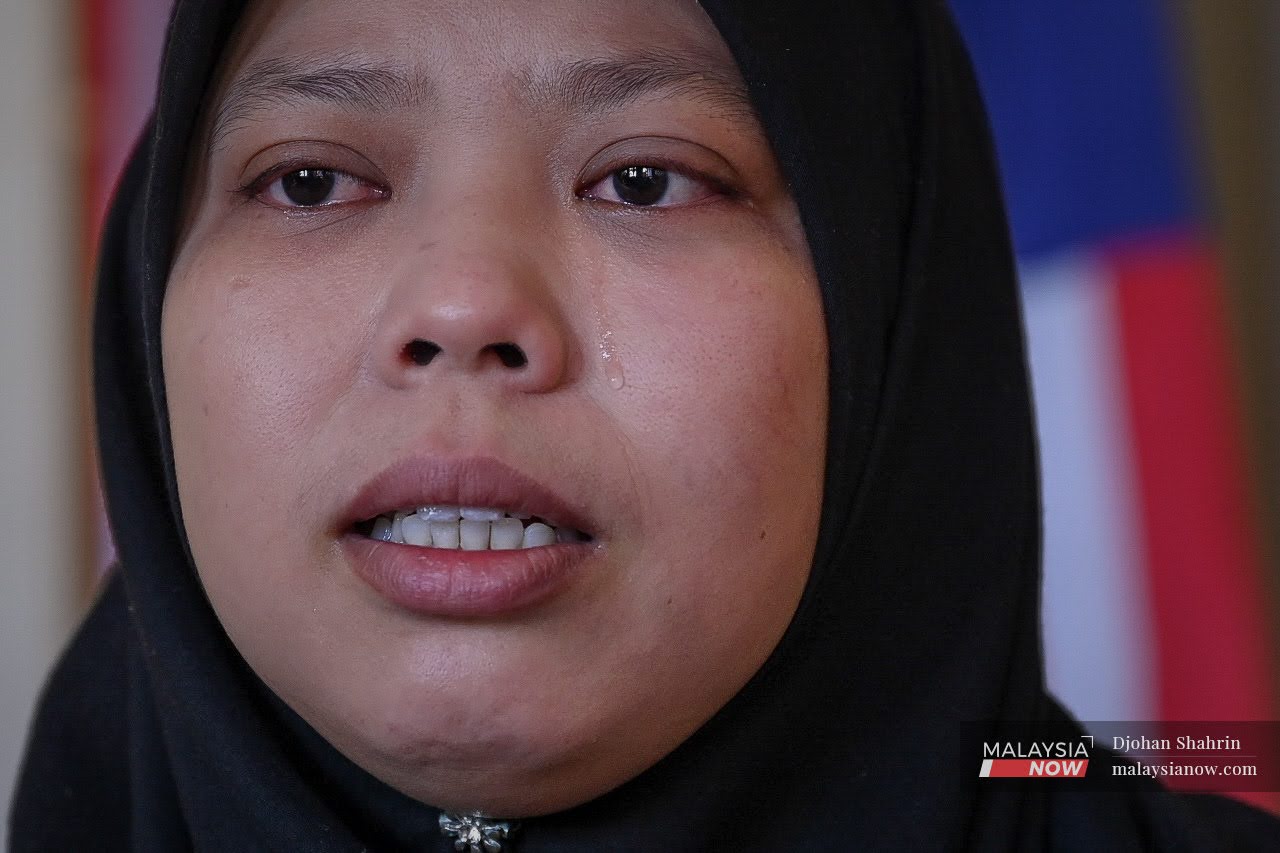What ‘back to school’ means for B40 families
It might mean more work for the parents and no new uniforms for the year, but these families are willing to do what it takes to get an education.
Just In
While many parents are eager for schools to reopen so that their children can have a proper education again, 42-year-old lorry driver Mohd Zaini Shamsudin knows that the return to the classroom will mean more work.
He and his wife, Norhanita Abdul Halim, have eight children, six of whom are of schoolgoing age.
But his monthly income of RM1,000 doesn’t stretch far, and now that they are heading back to school, it will have to go even further. This means that Zaini will have to look for ways to make a little extra on the side.
In spite of this, Zaini who lives in Taman Rinching in Semenyih is grateful that Norhanita has never complained about their situation, and even teaches their children to be thankful as well.
“We tied the knot after our previous marriages failed,” Norhanita, 41, told MalaysiaNow.
“My husband had five children with his ex-wife and I had three with my ex-husband.”

Although they are step-siblings, she said, they understand and help each other. “They even understand the struggles their father has to face.”
Norhanita herself is no longer able to work as she has a thyroid disorder which requires her to visit the hospital for treatment every month.
“We accept our fate and live in moderation,” she said, adding that sometimes, however, the family does not even have rice to eat.
The couple’s daughter, Nurisha Ezzatie Mohd Nawan, said the children are still wearing their old school uniforms even though these are torn and no longer fit.
“During online classes, we would take turns using our mother’s phone to learn or participate in the quizzes,” she said.
“Sometimes we would miss our classes when her phone credit was not enough for the internet data. But we never complained about our situation because we understood that our father is the sole breadwinner,” she told MalaysiaNow.
Seven plus two equals nine
In the same area of Taman Rinching, single mother Norfaizatul Azliana depends on the RM1,400 she earns each month to raise nine children – two of her own and seven others belonging to her sister who is unable to care for them herself.

But the 39-year-old who works at a fast food restaurant has never considered her nieces and nephews a burden, and does her best to care for them.
“I love them all as much as I love my own children,” she said. “I never see them as outsiders. Whatever I eat, they eat the same food, too.”
It’s not always easy to look after them, and Norfaizatul admits that sometimes she struggles.

But even then, she said, her nieces and nephews always listen to her and help each other.
“They make me feel like I should work extra hard to give them the best that I can.”
Sometimes, though, her best is not enough to cover the bills. She showed MalaysiaNow her electricity bill which was overdue by RM6,000 since 2019.
Her sister’s children – four boys and three girls – range from 10 months to 15 years old. The four older children, who go to school, take care of the baby as soon as they come home.
“They make me feel like I should work extra hard to give them the best that I can.”
For these children, their old school uniforms are good enough – as long as they don’t miss out on their education.
Fairuz Rusli, director of NGO Pertubuhan Warga Prihatin Hulu Langat, said he hopes the public will consider donating to these families.
“Every month I wonder about the condition of both families, in case they need more donations,” he said.
He said the group gives the family basic food items such as flour, sugar, rice, soy sauce, onions and eggs.
“We give these to families who apply for donations or we find those who are in need,” he said.
“I will help them as long as I can. But at the same time, we need cash donations to help them pay off their overdue bills such as for electricity, water or rent.”
He also estimates that around 700 families including Orang Asli have been affected by the pandemic in the Hulu Langat area.
Subscribe to our newsletter
To be updated with all the latest news and analyses daily.



